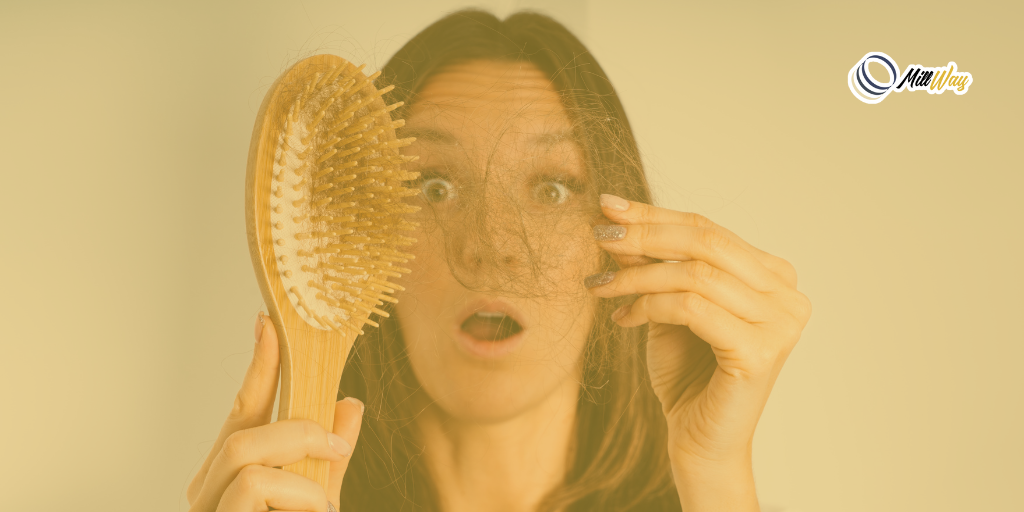
Many of you may consider hair loss as a natural part of life. But when it starts to become abnormal—like losing more than 100 strands a day—it could be a sign that your body is sending a signal: “I need attention.”
Hair is not just a crown, but also a reflection of what's going on inside the body. Let’s dive deeper into the causes, triggers, and holistic ways to address hair loss.
One of the main causes of hair loss is the hormone Dihydrotestosterone (DHT). DHT is formed from testosterone, and when its levels are excessive, it can shrink the size of hair follicles. As a result, hair grows thinner and eventually stops growing.
This condition is known as androgenetic alopecia. It doesn't just occur in men, but also in women—especially those experiencing hormonal imbalances like in the case of PCOS (Polycystic Ovary Syndrome).
Many people don't realize that excess sugar intake and refined carbohydrates like white bread, instant noodles, or sugary drinks can increase insulin levels. When the body experiences insulin resistance, hormonal chaos occurs, leading to increased production of DHT.
This situation is exacerbated if you have excess fat in the abdominal area (visceral fat), as fat tissue is hormonally active and can disrupt the balance of the endocrine system.
Several phases in life, especially in women, cause hormonal fluctuations:
Hormones like estrogen, progesterone, and cortisol greatly influence hair growth. When their balance is disrupted, hair follicles quickly enter the resting phase (telogen) and don't return to the growth phase (anagen).
Hair is the fastest growing tissue in the human body, but it is not the body's top priority. This means that if the body is lacking nutrients, the "supply" to hair will be reduced first.
Essential nutrients to prevent hair loss include:
Here are concrete steps that you can take:
Hair loss is often seen as a cosmetic issue, but it is actually a reflection of your internal condition. By recognizing the signals, you can start making improvements from within.
It's not just about changing shampoos, but changing your lifestyle.
The journey to healthy hair requires small daily commitments—from your diet, mindset, to sleep patterns.
📚 Sources:
